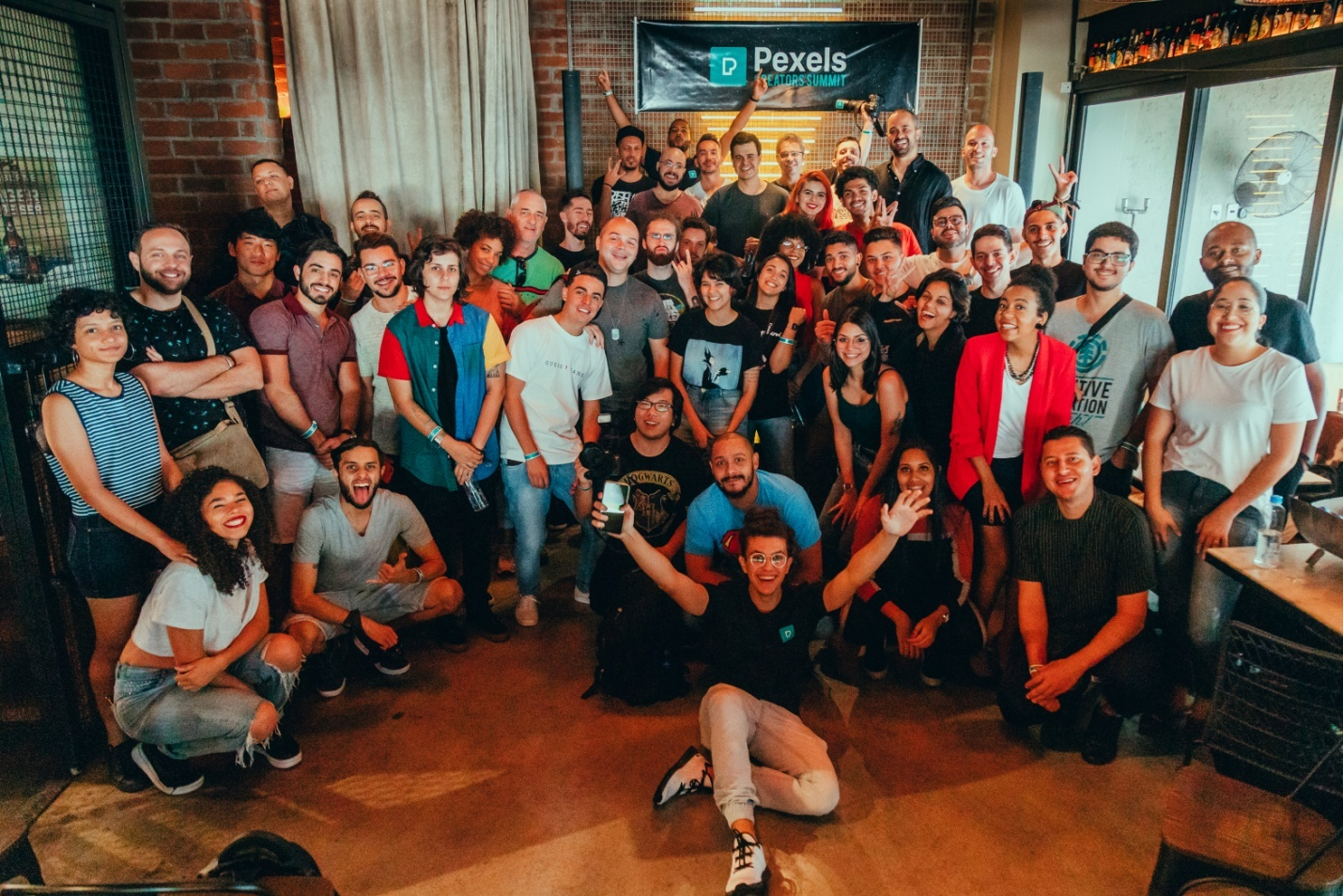In the ever-evolving landscape of the tech industry, staying ahead of the curve is not just a competitive advantage; it’s a necessity. At TTS, we understand the importance of nurturing talent and empowering individuals to adapt and thrive in this dynamic environment. That’s why we’re passionate about upskilling, reskilling, and continuous learning initiatives and how they can be instrumental in retaining top talent.
Before we dive into the nitty-gritty of upskilling and reskilling, let’s take a moment to ponder: How often do we stop and reflect on our own growth? Are we actively seeking out opportunities to expand our skill sets and knowledge base? These questions aren’t just rhetorical; they’re the foundation of a culture of continuous learning.
Imagine this: you’re a tech professional in Dallas looking to level up your career. You’ve got the skills, but you know there’s always room for improvement. Enter TTS, your go-to tech staffing agency in Dallas, with a plethora of upskilling and reskilling programs tailored to suit your needs. From coding boot camps to data science workshops, we’ve got you covered.
But why should you bother investing your time and energy in continuous learning? Well, let us break it down for you:
1. Stay Relevant:
In today’s fast-paced tech industry, what’s hot today might be obsolete tomorrow. By continuously upskilling and reskilling, you ensure you’re always on top of the latest trends and technologies.
2. Future-Proof Your Career:
With automation and AI disrupting traditional job roles, adaptability is key. By honing your skills and embracing new technologies, you future-proof your career and remain indispensable in the eyes of employers.
3. Boost Job Satisfaction:
There’s nothing quite like the feeling of mastering a new skill or conquering a challenging project. Continuous learning keeps you engaged, motivated, and fulfilled in your role, leading to higher job satisfaction and lower turnover rates.
4. Unlock Growth Opportunities:
Whether you’re eyeing that promotion or exploring new career paths, upskilling and reskilling open doors to exciting growth opportunities. By demonstrating a commitment to learning and development, you position yourself as a valuable asset to your organization.
5. Cultivate a Culture of Innovation:

At TTS, we believe that innovation thrives in an environment where learning is encouraged and celebrated. By fostering a culture of continuous learning, organizations can unleash the full potential of their workforce and drive innovation forward.
Now, let’s shift our focus to the broader tech industry workforce in Charlotte and tech recruitment in Hartford. How can upskilling and reskilling initiatives benefit companies and employees alike?
For companies, investing in the ongoing development of their employees is not just a nice-to-have; it’s a strategic imperative. Here’s why:
1. Attract Top Talent
In today’s competitive job market, top talent is in high demand. By offering robust upskilling and reskilling programs, companies can attract and retain the best and brightest minds in the industry.
2. Increase Employee Engagement
Engaged employees are more productive, creative, and committed to their organization’s success. By providing opportunities for continuous learning, companies can boost employee engagement and create a positive work culture.
3. Reduce Turnover Costs
The cost of employee turnover can be staggering, both in terms of time and money. By investing in the development of their existing workforce, companies can reduce turnover rates and save on recruitment and training costs.
4. Drive Innovation
In today’s rapidly changing business landscape, innovation is the key to staying ahead of the competition. By upskilling and reskilling their employees, companies can foster a culture of innovation and drive business growth.
But what about the employees? How do they benefit from upskilling and reskilling initiatives?
1. Career Advancement:
Whether you’re aiming for a promotion or exploring new career opportunities, upskilling and reskilling can help you take your career to the next level.
2. Increased Job Security:
In an age of automation and digital disruption, job security is a top concern for many employees. By acquiring new skills and staying relevant, you can future-proof your career and enhance your job security.
3. Personal Growth:
Continuous learning isn’t just about professional development; it’s also about personal growth. By challenging yourself to learn new things, you expand your horizons, boost your confidence, and become a more well-rounded individual.
4. Greater Job Satisfaction:

There’s nothing quite like the satisfaction of mastering a new skill or tackling a challenging project. By investing in your own development, you can increase your job satisfaction and find greater fulfillment in your work.
As we wrap up, let’s circle back to the importance of upskilling, reskilling, and continuous learning in talent retention. At TTS, we believe that investing in the development of your employees isn’t just good business; it’s essential for long-term success.
By offering opportunities for ongoing learning and growth, companies can attract, retain, and empower top talent, driving innovation and driving business growth.
So, whether you’re a tech professional looking to take your career to the next level or a company seeking to cultivate a culture of continuous learning, we’re here to help.
Contact us today to learn more about our skills-based tech hiring in Dallas, tech recruitment in Hartford, and talent acquisition in Hartford. Together, let’s unlock the full potential of your workforce and drive success in the digital age.
Starting a career in blockchain is a smart move in today’s job market. Blockchain technology is revolutionizing industries, making them more efficient and reliable. Since this tech is relatively new, there’s a shortage of skilled professionals who can develop solutions.
Major companies are actively looking for blockchain experts due to this shortage. So, if you’re trying to figure out your career path and there’s a high demand for this kind of talent, why not consider blockchain at the top of your list?
If you’re passionate about blockchain, working with this technology could be your dream job. You don’t necessarily need coding or programming skills. In fact, there are plenty of roles in blockchain that require expertise in different areas.
If you’re serious about building a career in blockchain, this guide is for you. Today, our tech staffing agency in Dallas will show you how to navigate the path and succeed in the dynamic world of blockchain.
The Rise of Blockchain Technology
Blockchain technology gained prominence with the introduction of Bitcoin in 2009. Originally designed to support digital currencies, the blockchain’s decentralized nature, transparency, and immutability have proven invaluable for solving real-world problems. The technology’s ability to create tamper-proof and secure digital ledgers has sparked interest across diverse sectors.
Skills Required for Blockchain Development
1. Programming Languages
Solidity: As the primary language for Ethereum smart contracts, Solidity is essential for developers interested in building decentralized applications (DApps) on the Ethereum blockchain.
C++ and Java: These languages are widely used for developing the core blockchain infrastructure, making them fundamental for blockchain developers.
2. Smart Contracts
Understanding smart contracts is crucial for developers. These self-executing contracts, with the terms of the agreement directly written into code, enable trustless transactions on the blockchain.

3. Cryptographic Knowledge
A deep understanding of cryptographic principles is vital for securing transactions on the blockchain. Developers need to be familiar with hashing, encryption, and digital signatures.
4. Distributed Computing
Since blockchain operates on a decentralized network of nodes, developers must be well-versed in distributed computing concepts to design scalable and efficient systems.
5. Data Structures
Proficiency in data structures is essential for organizing and managing data on the blockchain. Knowledge of Merkle trees and hash functions is particularly valuable.
6. Cybersecurity
Given the importance of security in blockchain systems, developers should have a strong background in cybersecurity to identify and address potential vulnerabilities.
7. Understanding of Consensus Mechanisms
Familiarity with different consensus algorithms, such as Proof of Work (PoW) and Proof of Stake (PoS), is crucial for designing and implementing secure blockchain networks.
Opportunities in Blockchain Development
1. Decentralized Finance (DeFi)
DeFi has emerged as a major disruptor in the financial industry. Blockchain developers can contribute to the creation of decentralized lending platforms, decentralized exchanges, and other financial instruments that operate without traditional intermediaries.
2. Supply Chain Management
Blockchain is transforming supply chain management by enhancing transparency and traceability. Individuals interested in blockchain technology can work on creating blockchain solutions to track the journey of products from manufacturing to delivery, reducing fraud and ensuring authenticity.
3. Healthcare
In the healthcare sector, blockchain can streamline data management, secure patient records, and facilitate interoperability among different healthcare providers. Individuals can contribute to the creation of secure and interoperable healthcare solutions.
4. Tokenization of Assets
You can also explore the tokenization of real-world assets, such as real estate or art. This involves representing ownership of physical assets on the blockchain, enabling fractional ownership and easier transfer of assets.
5. Smart Cities
Blockchain can play a pivotal role in building smart cities by facilitating secure and transparent data sharing among different urban systems. Thus, you can contribute to the creation of decentralized applications that enhance city infrastructure and services.
6. NFTs (Non-Fungible Tokens)
The rise of NFTs has opened up new opportunities for blockchain developers. NFTs, which represent unique digital assets, have applications in art, gaming, and entertainment. Developers can contribute to the creation of NFT marketplaces and platforms.
The rise of blockchain technology has ushered in a new era of innovation, transforming industries and creating unprecedented opportunities for skilled professionals. Aspiring blockchain developers armed with a robust skill set can find themselves at the forefront of technological advancements, contributing to the evolution of decentralized ecosystems.
For those ready to start a career in blockchain, the diverse opportunities highlighted in this guide demonstrate the expansive reach of this technology. Whether you are drawn to decentralized finance, supply chain management, healthcare solutions, or emerging fields like NFTs, blockchain offers a dynamic and fulfilling career path.

If you’re eager to seize these opportunities and build a successful future in blockchain technology, look no further. Tech Talent and Strategy, our tech recruitment firm, specializes in connecting talented individuals with leading companies in the blockchain space. You can also join our virtual coding bootcamp, which provides a comprehensive foundation to launch your career in this exciting and rapidly evolving field.
Don’t miss out on the chance to be part of the blockchain revolution. Contact TTS today, and let us help you carve a path to success in blockchain development.
Gone are the days when employees could perform the same tasks day in and day out without consequences. In the ever-evolving landscape of the modern workplace, stagnation is synonymous with obscurity, and the absence of growth can be detrimental to both individual careers and businesses alike.
As the business world becomes increasingly dynamic and technologically driven, job roles are undergoing rapid transformations. This evolution creates a discernible gap between the skills employees currently possess and those that are increasingly demanded by the market. Many companies find it challenging to keep their workforce adequately prepared for these constant changes.
In response to this challenge, the concept of employee upskilling has emerged as a vital strategy. Upskilling involves the continuous training and development of employees to equip them with the necessary skills to navigate the demands of the evolving workplace.
In this article, we discuss easy steps to upskilling employees in your organization.
What Does Employee Upskilling Involve?
Employee upskilling entails the process of equipping workers with updated or enhanced knowledge, skills, and capabilities that are pertinent to their existing or future responsibilities. It can be achieved through diverse methods, including coaching, mentoring, formal training, online courses, etc.
For instance, if there is a need for a sales team to acquire proficiency in using new software to boost lead generation and deal closure, upskilling efforts may involve offering online tutorials, workshops, or webinars, to impart effective utilization of the tool. In doing so, the aim is to elevate their skill set, thereby contributing to improved outcomes and performance.

6 Steps to Employee Upskilling
Here are 6 steps to upskill your employee:
1. Identify Training Needs and Skills Gap
Start the upskilling process by pinpointing the skill gaps and training requirements of your workforce. You can do this through a thorough skills assessment, or a comprehensive analysis of training needs.
Conduct a meticulous evaluation of current employee skills and knowledge by utilizing surveys, performance evaluations, and supervisor feedback. Analyze job requirements and juxtapose them with the skills possessed by employees to discern any gaps or areas for improvement. Identify specific needs by considering factors such as emerging trends, technological advancements, and changes in job roles. Utilize interviews and feedback sessions with employees to gather their input and identify their training needs and areas for improvement.
2. Create a Plan for Learning and Development
Subsequently, craft a comprehensive learning and development plan for your employees. This document should outline the objectives, goals, methods, strategies, resources, timelines, and evaluation criteria for the upskilling process.
Define training and development objectives aligned with the organization’s overarching goals. Determine suitable learning methods and resources, such as workshops, online courses, or mentoring programs. Implement the plan by scheduling and organizing training sessions, providing necessary support and resources, and assessing progress and the plan’s effectiveness.
3. Facilitate Continuous Learning
The third step entails fostering a culture of continuous learning within your organization, where learning is not only valued but also supported, rewarded, and celebrated.
Provide opportunities for professional development through training programs and workshops. Motivate employees to establish and pursue personal learning objectives related to their job roles. Acknowledge and reward those who actively engage in continuous learning activities. Cultivate a learning culture by promoting knowledge-sharing and collaboration among employees.
4. Offer Support
Play a supportive role in the employee upskilling process by being a leader who motivates and inspires employees to acquire new or enhanced skills.
Set clear expectations and goals for employees’ learning outcomes. Provide regular feedback and recognition for their learning efforts. Facilitate collaboration and communication among employees and other stakeholders. Remove any barriers or obstacles that may hinder employees’ learning processes.
5. Track and Assess Progress
The fifth step involves measuring and evaluating the progress and impact of the upskilling process. This includes collecting and analyzing data and evidence illustrating how employees’ skills have improved and how their performance has changed.
Utilize various metrics to measure and evaluate progress and impact, such as employee performance metrics, completion rates, and feedback. Regularly assess the effectiveness of the upskilling initiatives and make adjustments as needed.
6. Acknowledge and Reward Learning Achievements
In the final step, acknowledge and celebrate the learning achievements of your employees resulting from the upskilling process. Provide various forms of recognition and rewards to highlight their success and improvement.
Acknowledge and celebrate improvements in skills and performance. Provide tangible rewards, such as promotions or bonuses, to employees who excel in their upskilling endeavors. Create a positive and motivating environment that encourages ongoing learning and improvement.
As we navigate the future, upskilling becomes not only a tool for survival but a catalyst for sustained growth and success.
At Tech Talent and Strategy, we are a tech staffing agency in Dallas and also offer training solutions to organizations. If you need employee upskilling programs in your organization, don’t hesitate to reach out. Contact us today for the best workforce solutions!
In a world powered by innovative technology, remaining at the forefront is not merely a choice but an indispensable requirement. Whether you enjoy the challenges of coding, the captivating universe of digital marketing, or the boundless creativity of the arts, it’s important for you to redefine your skills to achieve true excellence.
As we move toward the future, it becomes clear that specific skills will help us unlock the doors to boundless opportunities. Future-proofing your career is a strategic imperative. It ensures that you lead in the dynamic realms of technology, digital marketing, and creative expression.
Kickstart a transformative journey to fortify your career by delving into the top skills to master by 2026. This proactive exploration is your ticket to unlocking high-paying and in-demand positions. Moreover, these skills will also help you position yourself as a leader in the ever-evolving landscapes of technology, digital marketing, and creative fields.
Top Skills to Master by 2026 for Jobs in Tech
1. Data Communication
The role of data communication is set to be in high demand in the upcoming years, driven by the increasing prevalence of data-centric jobs. Research commissioned by Tableau from Forrester projects that by 2025, 70 percent of jobs will involve direct engagement with data, necessitating individuals with the expertise to interpret, translate, and effectively communicate it.
The data communication skill set revolves around the ability to convey insights in ways that are not only effective but also engaging. The storytelling element is crucial, as skilled data storytellers possess the capability to perceive and communicate the narrative inherent in data. In practical terms, this involves explaining the origin and significance of insights to the business, along with the optimal strategies for implementation.

2. Cybersecurity
The surge in home and remote work, ignited by the COVID-19 pandemic and extending into 2023, underscores the critical role of cybersecurity for every company. No longer confined to IT departments, the responsibility for data security and operational resilience now extends to every employee.
Whether you are considering a cybersecurity career path or aiming to enhance your marketability in your current role, cybersecurity skills are poised to be in high demand for the foreseeable future. The landscape of home and remote work, the Internet of Things (IoT), and the ongoing digitization of various aspects of life, including the metaverse, pose significant challenges from potential cyber threats.
Cybersecurity professionals leverage artificial intelligence (AI) to predict and counter hacking and Distributed Denial of Service (DDoS) attacks, along with adopting a psychological approach to defend against social engineering tactics. This multifaceted skill set positions individuals in cybersecurity as highly sought-after contributors to the workforce of the future.
Top Skills to Master by 2026 for Jobs in Marketing
1. SEO/SEM Skills
Vital in the digital marketing realm, Search Engine Optimization (SEO) and Search Engine Marketing (SEM) are pivotal for future job roles. SEO involves the optimization of websites and online content to elevate visibility in search engine rankings.
In contrast, SEM strategically employs paid advertising to reach specific target audiences. As businesses increasingly prioritize online presence, acquiring proficiency in SEO and SEM becomes a valuable asset in the digital marketing field.
2. Performance Analytics Skills
Integral to digital marketing, performance analytics entails the measurement, analysis, and interpretation of results from various marketing activities. It enables marketers to track campaign effectiveness and make data-driven decisions to optimize future initiatives.
Proficiency in tools such as Google Analytics and Adobe Analytics significantly enhances the ability to assess marketing performance and devise effective strategies. In an era where data-driven decisions are paramount, mastering performance analytics is a key component of success in future digital marketing jobs.
Top Skills to Master by 2026 for Jobs in Creative Fields
1. User Experience (UX) Designer
With the continuous blending of design and technology, the demand for UX designers is on the rise. These creative professionals play a crucial role in shaping the architecture and wireframes that guide users through a product or website. Their focus is on addressing users’ needs to craft the optimal user experience while aligning with business objectives.
This role demands a combination of creative, technical, and problem-solving skills, alongside a touch of psychology and storytelling. UX designers are responsible for the entire design process, spanning research, ideation, and concept development to prototyping and evaluation. Collaboration is key, requiring the ability to work seamlessly with business, customer service, design, and technology teams. A comprehensive understanding of design principles and proficiency in wireframing tools like Axure RP, Balsamiq, InVision, and Sketch are essential for UX designers to excel in their roles.
2. Digital Illustration and 3D Modeling Skills for Future Jobs
In the creative industry, Digital Illustration and 3D Modeling skills have become indispensable. Digital illustration involves utilizing digital tools to craft images, applicable in various fields such as animation, graphic design, and game development.
On the other hand, 3D modeling, the process of creating a mathematical representation of any three-dimensional surface or object, finds significant applications in industries like film, architecture, and product design. The mastery of these skills positions individuals for success in future jobs within the creative landscape.

Mastering these top skills by 2026 will future-proof your career and position you as a leader in industries that thrive on innovation and creativity. Embrace the opportunities presented by these skills and open the doors to high-paying and in-demand jobs in the tech, digital marketing, and creative realms.
If you’re a business seeking to harness the power of these skills and are in need of exceptional tech talent to propel your organization forward, look no further than Tech Talent and Strategy. As a leading tech staffing agency in Dallas, we specialize in connecting businesses with the brightest minds in the industry.
Whether you’re expanding your tech team or looking to hire technical staff with expertise in coding, data science, cybersecurity, or any other cutting-edge skill, we’ve got you covered. Contact us today to explore how we can help you build a team that drives success in the rapidly evolving tech landscape.
In the ever-evolving landscape of technology, hiring the right talent is a critical strategic imperative for businesses. As an employer, evaluating the technical prowess of candidates during the interview process is akin to unlocking the gate to excellence.
Are you ready to transform your hiring journey and shape the technological frontiers with the best minds? Elevate your hiring game with precision and purpose. Unleash the potential of your team by incorporating interview tips by professionals at Tech Talent & Strategy into your technical skill assessment process. The future of innovation begins with the right talent—seize it now!
While our talent recruitment agency is here to connect you with a team that’s equipped to thrive in the dynamic tech arena, we recommend setting the stage for success by forming a fine-tuned job description.
Before diving into interviews, clearly outline the technical skills essential for the role, ensuring alignment with your company’s goals. This not only attracts candidates with the right expertise but also provides a roadmap for your assessment strategy.
Tips for Assessing Technical Skills during the Interview Process
Tip #1- Craft Tailored Technical Questions
Designing specific and relevant technical questions is an art. Tailor your inquiries to match the job role, considering both fundamental and advanced skills. Focus on problem-solving, coding exercises, system design, and scenario-based questions. This tailored approach not only gauges technical proficiency but also assesses a candidate’s ability to apply knowledge to real-world challenges.
Tip #2- Employ Behavioral Interviewing Techniques
Beyond technical acumen, behavioral attributes are equally integral to a candidate’s success. Incorporate behavioral interviews to gauge problem-solving skills, collaboration abilities, and adaptability. Real-world scenarios can be presented to assess how candidates approach challenges and collaborate within a team.
Tip #3- Leverage Simulation & Practical Tasks
Take interviews beyond theoretical discussions by incorporating simulations and practical tasks. Simulations provide a glimpse into a candidate’s ability to apply technical knowledge in practical scenarios.
Whether it’s troubleshooting a system issue or designing a software architecture, realistic simulations mimic on-the-job challenges, offering insights into a candidate’s problem-solving capabilities.
Tip #4- Cross-functional Collaboration
While primarily focusing on technical skills is important, make sure you don’t neglect the importance of soft skills. Assess a candidate’s ability to collaborate cross-functionally, communicate complex technical concepts to non-technical stakeholders, and contribute positively to team dynamics.

Tip #5- Stay Inclusive with Pair Programming
Incorporate pair programming sessions into the interview process. This collaborative approach allows you to observe a candidate’s coding skills in tandem with their ability to work collaboratively, providing a comprehensive view of their technical and interpersonal capabilities.
Tip #6- Case Studies & Project Discussions
Discuss in-depth case studies or specific projects from a candidate’s portfolio. Dive into the technical challenges they faced, the decisions they made, and the outcomes. This provides nuanced insights into their problem-solving approach and decision-making in a project context.
Tip #7- Hands-on Assessments
Incorporate hands-on assessments or technical exercises to evaluate candidates in action. Coding challenges, system debugging, or problem-solving exercises simulate the actual work environment. Bespoke exercises can offer a glimpse into a candidate’s coding style, logic, and efficiency.
Tip #8- Emphasize Soft Skills
While technical skills are paramount, soft skills are the glue that binds a team. Evaluate a candidate’s communication, teamwork, and problem-solving skills. A well-rounded technologist not only excels in their craft but also contributes positively to the team dynamic.
Tip #9- Code Review Simulations
Simulate a code review scenario where candidates are presented with a piece of code and asked to provide constructive feedback. This assesses their code quality standards, attention to detail, and ability to collaborate within a codebase.
Tip #10- Evaluate Cybersecurity Awareness
Assess a candidate’s awareness of cybersecurity best practices for roles involving security considerations. Inquire about their approach to secure coding, vulnerability assessments, and their understanding of common security threats.
Tip #11- Monitor Adaptability to New Technologies
Assess a candidate’s adaptability to learning and adopting new technologies. In the rapidly evolving tech landscape, candidates who exhibit a willingness and capability to learn and adapt to emerging technologies are valuable assets.
Tip #12- Transparent Communication with Candidates
Maintain transparent communication with candidates throughout the process. Clearly articulate the technical assessment format, expectations, and timelines. This not only sets the right expectations but also reflects positively on the company’s commitment to fairness and professionalism.

Partner with TTS to embrace a hiring process that blends precision with insight. As a leading tech staffing agency, we can help you build a team that doesn’t just meet expectations but surpasses them.
We employ the latest interviewing and testing platform designed for technical assessments. Our team stays abreast of the latest industry trends and ever-evolving skill demands to tailor assessments accordingly.
Reach out to ensure each hire contributes not just skills but innovation, dedication, and a shared commitment to driving the technological frontiers forward. Elevate your technical hiring game and let your team be the driving force of innovation in the ever-evolving tech landscape.
We can also help polish your current team’s skills. Whether you work with an in-house or remote tech team, affordable tech education is now easy with TTS’s exclusive coding boot camps and online coding courses.
Whether you’re looking to hire talent or want to get hired, a bright future starts with the right talent solutions company. Connect with us to understand why we’re the right choice!
In a rapidly evolving professional landscape, staying ahead of the curve is essential. That’s why we’re thrilled to introduce our latest offerings: three cutting-edge workshops designed to equip you with the skills and knowledge you need to excel in today’s competitive world. Whether you’re in the field of sales and marketing, project management, or software development, our workshops have you covered.
Drum roll please 🥁…
Introducing:
Unleashing Sales and Marketing Potential with ChatGPT Workshop
- In this dynamic 3-hour workshop, delve into the transformative power of ChatGPT in elevating your sales and marketing strategies to unprecedented heights. Designed for professionals across industries, this workshop will equip you with the knowledge and tools to harness the capabilities of AI-driven language generation to enhance customer engagement, lead generation, and brand promotion. By the end of this workshop, you’ll be equipped with the skills and knowledge to leverage ChatGPT as a powerful ally in your sales and marketing endeavors.
Comprehensive Project Management Workshop
- Embark on a comprehensive 6-hour journey into the realm of modern project management methodologies, encompassing SCRUM, Agile principles, and the practical application of Jira software. Whether you’re an aspiring project manager or a seasoned professional seeking to enhance your skills, this immersive workshop will equip you with the tools and techniques needed to effectively plan, execute, and monitor projects for optimal success.
Harnessing AI for Coding Excellence Workshop
- This workshop explores the integration of AI-powered tools into your coding and development workflow. Whether you’re a seasoned developer or just starting your coding journey, this workshop will equip you with the knowledge and skills to leverage AI for increased productivity, code quality, and creativity in your projects. We’ll also discuss the ethical considerations to using AI in coding and go hands-on with the innovative GitHub Copilot.
Unlike our 10-12 week learning pathways, these workshops are shorter, but still jammed-pack full with the information you need to succeed. Even better, you get certified at the end of the workshop, preparing you to take your LinkedIn game to the next level!
AWS re/Start, a skills development program that prepares unemployed or underemployed individuals for entry-level careers in the cloud, is collaborating with Tech Talent South, a certified woman-owned tech recruiting, training, and staffing company. Tech Talent South will support learners throughout the AWS re/Start program and help them launch careers in cloud computing. Together, AWS re/Start and Tech Talent South are excited to help individuals develop in-demand cloud skills and prepare for jobs in and around their local communities.
Maricopa County, AZ and Tech Talent South are excited to announce our partnership on the Maricopa County Tech Accelerator (MCTA), a remote Incumbent Worker Training (IWT) program for Maricopa County residents!
Betsy Hauser is the CEO & Founder of Tech Talent South (TTS), a WBENC-certified technology recruitment, training, and staffing company that believes in the power of diversity and matching companies to the best talent. Before starting TTS, Betsy ran a Charlotte-based product development company, which merged with innovation giant, Enventys in 2012. Betsy has been named one of Charlotte’s 12 Innovators by Ernst and Young, Most Admired CEO, Woman in Business, Emerging Leader CIO, Charlotte’s Seven to Watch, and Charlotte Business Journal’s 40 under 40.